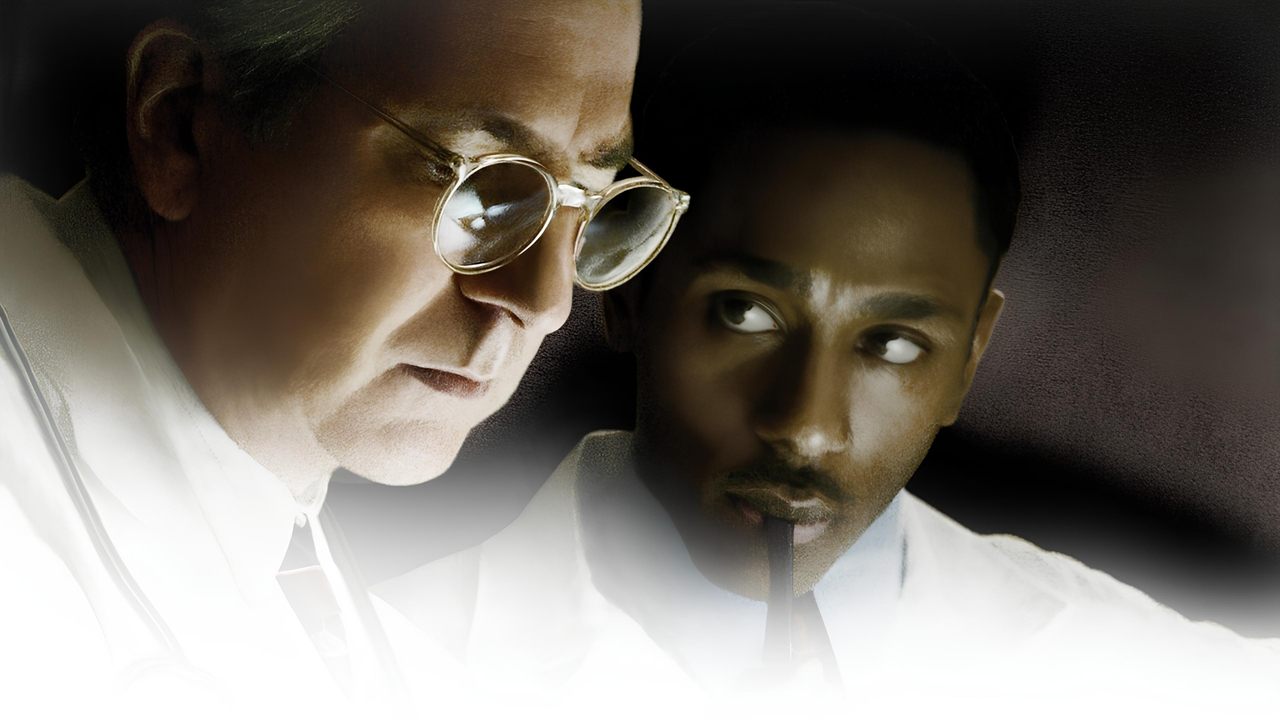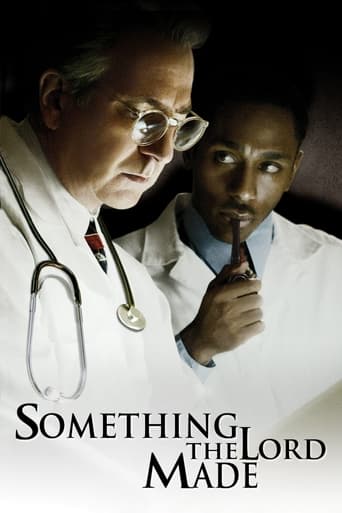Scanialara
You won't be disappointed!
Supelice
Dreadfully Boring
Stellead
Don't listen to the Hype. It's awful
ChanFamous
I wanted to like it more than I actually did... But much of the humor totally escaped me and I walked out only mildly impressed.
vincentlynch-moonoi
I detest hip hop and rap. But, as with pop music over the decades beginning at least as far back as the 1940s, some music stars from each genre of music have also become movie and television stars. Mos Def turns in a superb performance in this HBO film...a film that deserved release in movie theaters; it's that good. And to top off Mos Def's performance is an equally stunning performance by Alan Rickman, who provided a surprisingly good southern accent. This film, based on true events, tells the story of a Depression Era White doctor who hires a Black man as an assistant in his lab, expecting him to perform janitorial work. Over time, he realizes that the Black worker is a gifted medical "technician". Their friendship grows despite the racial barriers, and the Black assistant eventually becomes a full-fledged doctor at Johns Hopkins. The story itself is inspiring. But so is the acting, which is top notch.Another gem here is one of the loveliest (and best) actors in the Black community -- Gabrielle Union. This particular role isn't as big as many of the romantic role she has taken, but it's still a good performance.I find this film very moving and inspirational. A solid 8.
mattkratz
This was a great true story about overcoming tremendous odds and adversity. It is about two men, one white and one black, who pioneered newborn heart surgery. Mos Def's character is a carpenter who comes on at Johns Hopkins University and helps Alan Rickman's character develop procedures for the operation and everything. Of course, Def has to overcome prejudice and the social aspects of the day, as it is set during the 1940s. Overall, this was a very inspiring movie. I am very glad I saw it. I liked all the characters, especially the one portrayed by Charles Dutton. Definitely see it if you get the chance.*** out of ****
x xx
This movie is outstanding, as the other reviewers have already told. I first came upon it while flipping through the guide to see if there was anything worth watching and I noticed this movie about pioneering heart surgery. Being in the medical field myself, I had to watch, and WOW! I am so glad I did. After that I made my kids and hubby watch too and they loved it equally. It often seems to me that the very best movies are based on a true story, and this movie is no exception.The only thing I feel compelled to add that others have not told is that the first blue baby treated, the one about whom Dr. Blalock said, "Maybe God does want this child to die, but I mean for her to live," um, the baby died. God always gets the last word. I think they should have included that fact in the movie (that the child did not survive). The movie made it look like Dr. Blalock was above God. Of course, those in the medical field know plenty of surgeons who think that way, but I wanted it pointed out in the movie that that's not the case. Otherwise, this movie is very impressive from the directing, filming, acting, in EVERY way. Highly recommended.
bandw
This is a docudrama about the two people behind the first open heart surgery: Dr. Alfred Blalock (Alan Rickman) and Vivien Thomas (Mos Def). One of the many qualities of the film is how it gives enough technical medical details so that you can appreciate the ultimate achievement of the successful operation in 1944 - on a baby with a heart defect - but it does not dwell on the technical specifics to the extent that only a medical doctor could appreciate them. As interesting as the medical aspects are, the real strength of the movie lies in the character development of the two men and the depiction of the racism that Thomas had to endure. Sometimes I felt we were being hit over the head a little too hard with the racism angle (Blacks to the back of the bus, Thomas serving drinks at Blalock's social parties, documentary footage of blacks being hosed and attacked by dogs, Blacks having to enter through the hospital back doors, separate restrooms, and so forth), but that was what Thomas was facing at the time. At least he lived long enough to see the end of institutionalized racism and get some of the respect he deserved.Blalock was an interesting character. When Vivien was the janitor in his lab Blalock was interested enough in him as a person to find out that he had been a skilled carpenter. When Thomas showed some interest in Blalock's surgical experiments on animals, it occurred to Blalock that, given Thomas' background, he might have uncommon dexterity. When this turned out to be true, Blalock was open-minded enough to train Thomas to work with him on surgical procedures. When Blalock stands up for Thomas' working with him in the face of racist comments from colleagues and resists certain racist customs you are thinking that this is going to be one of those stories to warm the hearts of ardent liberals. But Blalock had either an insidious form of racism or such an ego that he could not seem to look much beyond how he could use Thomas to further his career. He could unreasonably fly into a rage when he thought that Thomas was not living up to his impossible expectations and he did not push for any promotions or pay raises for Thomas in spite of the fact that Thomas' skills were developing to equal or surpass Blalock's own. When Blalock's pioneering work received national recognition, he did not include mention of Thomas' contributions.When Blalock showed up at Thomas' house one night, Thomas' wife said to him, "In all the years that you have worked with Vivien you have never come to our house," and Blalock responded, "You never asked me." Trying to figure Blalock out and just what the bond was between these two men is quite a puzzle.I would have liked to know more about Thomas as a person. Whereas Blalock is presented warts and all I have the feeling that there was more to Thomas than the saintly image we get here.The final scene is very moving, where the faces of the actors resolve into the real portraits of the two men that now hang in the Johns Hopkins Medical Center.It is an unusual movie where you get a history lesson as well as an engaging character study.

